Animals
-
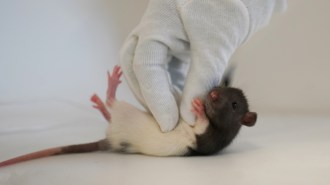 Neuroscience
NeurosciencePlayful behavior in rats is controlled by a specific area of their brains
Cells in a brain region called the periaqueductal gray are activated by chasing and tickling, a study finds. Blocking their activity reduces play in rats.
By Simon Makin -
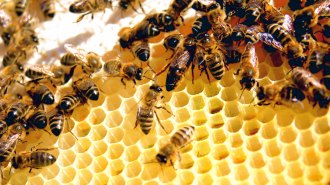 Math
MathHow geometry solves architectural problems for bees and wasps
Adding five - and seven - sided cells in pairs during nest building helps the colonyfit together differently sized hexa gonal cells , a new study shows.
-
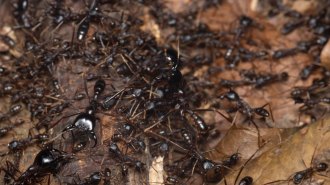 Animals
AnimalsSome African birds follow nomadic ants to their next meal
Specialized interactions between birds and driver ants in Africa could help explain why the birds are especially sensitive to forest disturbances.
By Yao-Hua Law -
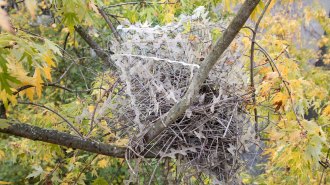 Animals
AnimalsIn a ‘perfect comeback,’ some birds use antibird spikes to build their nests
The spikes were meant to keep birds away. But five corvid nests in Europe use the bird-deterrents as structural support and to ward off predators.
-
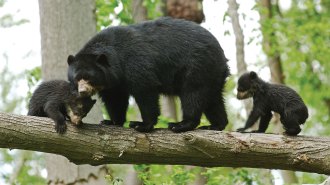 Animals
AnimalsExplore the past, present and future of ‘Eight Bears’
The book invites readers to meet the eight species of bears left on Earth and looks at how humans are shaping their future, for better or for worse.
By Jake Buehler -
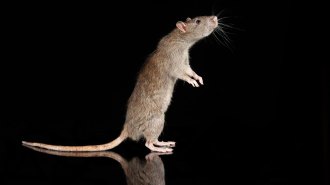 Life
LifeRats sense the wind with antennae-like whiskers above their eyes
Long, thin whiskers above rats’ eyes appear to sense faint air movement, which may be helpful for detecting moving threats in dark, narrow corridors.
By Jake Buehler -
 Animals
AnimalsThese researchers are reimagining animal behavior through a feminist lens
Ambika Kamath and Melina Packer are working to overturn biased, outdated views in biology.
-
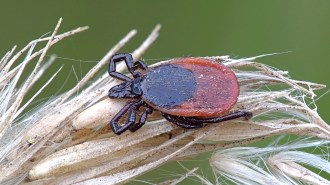 Animals
AnimalsStatic electricity can pull ticks on to their hosts
Ticks brought near objects with a static charge frequently get pulled to those surfaces, a new study finds, suggesting one way the bugs find hosts.
By Soumya Sagar -
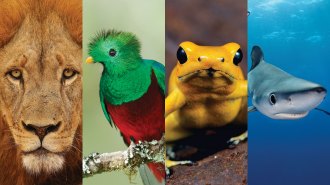 Science & Society
Science & SocietyHumans exploit about one-third of wild vertebrate species
An analysis of nearly 47,000 vertebrate animal species reveals that using them for food, medicine or the pet trade is helping push some toward extinction.
By Sid Perkins -
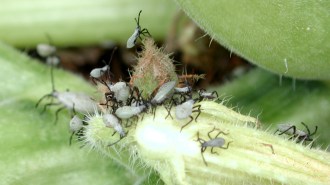 Life
LifeYoung squash bugs seek out adults’ poop for an essential microbe
Squash bug nymphs don’t rely on their parents to pick up a bacterium they’d die without. They find it on their own.
-
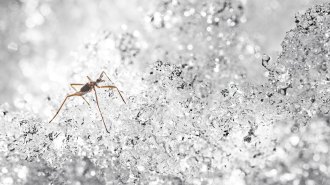 Animals
AnimalsA grisly trick helps snow flies survive freezing: self-amputation
When a snow fly’s leg begins to freeze, a quick amputation can prevent ice from spreading, keeping the cold-hardy insect alive.
By Meghan Rosen -
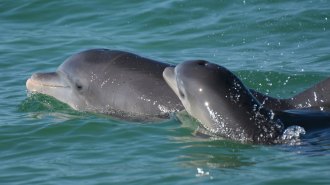 Animals
AnimalsBottlenose dolphin moms use baby talk with their calves
When their babies are near, bottlenose dolphin moms modify their signature whistles, similar to human parents speaking in baby talk.